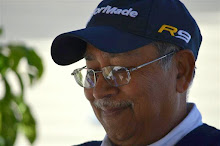-
The Tropic of Cancer threads its way quietly through Bengal, leaving little trace of its influence on the landscape and people. But in a small village near Bardhaman, tucked just a little off the main road from Farakka to Kolkata, there’s an unassuming roadside tea house with a single table, which locals call "The Echo Table." This spot, untouched by fame or tourism, has recently been the subject of curious whispers and hushed discussions among the patrons.
Samaranand, a traveler from Kolkata, happened upon this tea house on his way back from a project in Farakka. As he sat down at the old wooden table, sipping the chai that the elderly owner brought out, he noticed a man nearby. The stranger, who introduced himself as Sadhan Sen, had a peculiar air about him, like someone waiting for an unusual experience. Sadhan glanced at Samaranand and, noticing his curiosity, offered a story, a legend of sorts, about the "Echo Table."
---
The Tale of the Echo Table
According to Sadhan, the table, positioned directly under the line of the Tropic of Cancer, possessed a mysterious aura that revealed itself only under very particular celestial conditions. Every five years, when constellations such as Leo, Virgo, and the Great Bear align in an intricate cosmic pattern, an eerie phenomenon occurs at the table. Anyone sitting there during the summer solstice at the exact hour finds themselves caught in what feels like a standstill of time. They experience flashes of images—a slideshow of ancient scenes, local memories, and historical events, all rolling by in a quiet, ghostly display.
Sadhan explained how he, too, had once been a skeptic. But during the last occurrence, five years ago, he experienced it firsthand. "It was like stepping into a river of memories," he said, "not my own, but of this land, these people." He saw moments from centuries past: bustling markets, ritual gatherings under the same skies, and soldiers marching through the plains during medieval conflicts. "You see history—not as a spectator but as though you are momentarily part of it, a silent observer."
---
A Search for Answers
Intrigued and skeptical, Samaranand returned to Kolkata with Sadhan’s story on his mind. He reached out to an old friend, Dr. Priya Chattopadhyay, an astronomer at Jadavpur University, to discuss the phenomenon. Dr. Chattopadhyay, initially skeptical, entertained his questions, sharing insights on constellations and their supposed influence on Earth. She explained how, traditionally, constellations like Virgo and Leo are thought to impact specific geographic locations due to gravitational and magnetic forces, but any such interaction is typically imperceptible.
Yet, she found the legend of the Tropic of Cancer interesting, given its geographic significance. The tropic marks the northernmost latitude where the sun can appear directly overhead. "The line itself has been significant in various cultures for millennia, believed to carry the power to reveal secrets during celestial events," she explained. The idea of alignment every five years was particularly intriguing, as certain patterns between constellations recur over cycles, though modern astronomy often dismisses terrestrial influences beyond gravity.
---
The Return to the Echo Table
Eager to unravel the mystery, Samaranand persuaded Dr. Chattopadhyay to accompany him to the tea house during the next predicted alignment. The two arrived well before sunset on the day of the solstice, joining Sadhan, who seemed as anxious as they were.
As they waited, an unusual stillness settled over the surroundings. Birds hushed, and even the light appeared suspended, shimmering like a thin veil over the tea house. Then, as if on cue, Samaranand began to feel a weight in the air around him, a tangible energy that pulsed with each heartbeat. Shadows of the past flickered at the table, faint figures appearing and fading in seconds: traders, musicians, farmers—fragments of life from a bygone era, woven together in a dreamlike sequence.
Dr. Chattopadhyay was silent, watching with scientific curiosity mixed with disbelief. She could hardly explain it but sensed it was real—a phenomenon yet to be studied, where cosmic energies perhaps aligned with the geography and historical imprint of the land. The Tropic of Cancer, combined with the ancient constellations above, seemed to act as a gateway, a momentary bridge between time and memory, accessible only to those seated at the Echo Table during this precise alignment.
---
A Phenomenon Left Unexplained
Samaranand left that day with a profound sense of awe and mystery. Dr. Chattopadhyay, now a silent believer, promised to study the location and pattern further, hoping to understand this strange phenomenon. But deep down, Samaranand knew that some things might never be explained—phenomena that lie at the intersection of the cosmic and the earthly, of myth and reality.
Sadhan Sen, however, returned each year to that tea house, ever the seeker, content with the knowledge that history has its guardians, and sometimes, all it takes to witness it is a table in the right place, at the right time, under the stars.




